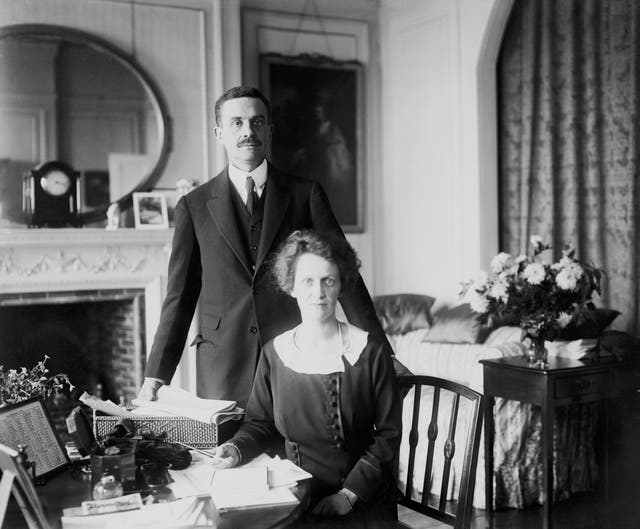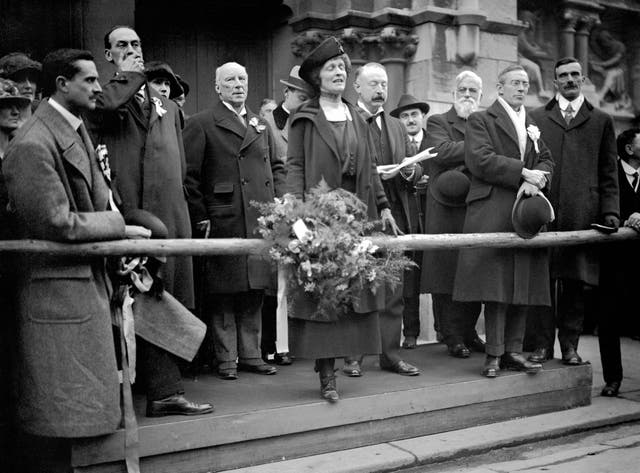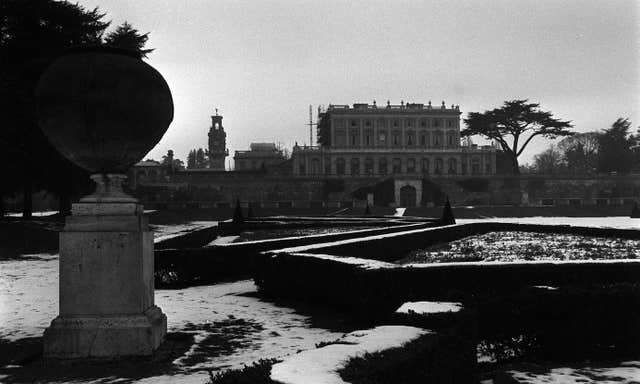A complex character and central to the so-called Cliveden set, Nancy Astor rose to be a prominent politician and society hostess after she was the first woman to take a seat in Parliament.
The pioneering figure became an MP when she won Plymouth Sutton for the Conservatives in 1919, a constituency she held for 25 years.
Born in Virginia in 1879, Lady Astor moved to England in 1904, where she met and married Waldorf Astor.
The wealthy newspaper proprietor represented Plymouth in the Commons from 1910 to 1918 and then the Sutton division from 1918.

It was suggested that Lady Astor contested her husband’s seat and after winning the by-election in 1919, she became the first woman to sit in Parliament.
But contrary to public opinion, she was not the first ever female MP.
That honour goes to Constance Markievicz, an Irish Republican elected in 1918 who, in line with Sinn Fein’s abstentionist policies, did not take her seat.
Lady Astor made her first speech to the House of Commons on February 24, 1920 during a debate on alcohol restrictions.
A subject close to her heart, she introduced the first Private Member’s Bill sponsored by a woman – the Intoxicating Liquor (Sale to Persons Under Eighteen) Bill – which raised the legal age for buying alcohol.
She also used her maiden speech to tell the Commons: “I am simply trying to speak for hundreds of women and children throughout the country who cannot speak for themselves.”

That was not the only testy exchange reported between Lady Astor and Mr Churchill.
She is once said to have told him: “If I were your wife I’d give you poison in your coffee,” to which Mr Churchill replied: “If you were my wife, I’d drink it.”
For two years she was the only woman in the Commons, before being joined by Margaret Wintringham, MP for Louth, in 1921.
Ten years later, Lady Astor and her long-term friend, the playwright and activist George Bernard Shaw, visited the Soviet Union for an interview with Stalin.
Cliveden House – the Astor family’s mansion in Buckinghamshire – hit the headlines in the second half of the 1930s after parties at the residence raised questions about a more serious agenda.

After holding the Plymouth Sutton seat for a quarter of a century, Lady Astor stood down in 1945.
She died at Grimsthorpe Castle, the Lincolnshire home of Lady Ancaster, one of her six children, in 1964 aged 84.
A statue is being unveiled of Lady Astor in Plymouth on Thursday, marking 100 years since she became the first woman to take a seat in Parliament.






